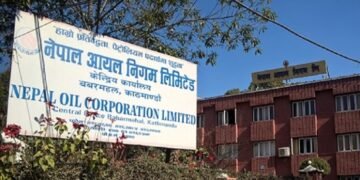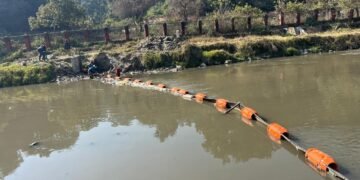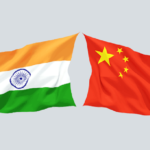Water issues and problems connected to water are particularly serious in Asia. Despite housing more than half of the world’s population, the region contains less freshwater than any other continent save Antarctica (3,920 cubic metres per person per year). It is a very crucial location because water from the glacier melt and mountain springs of the Tibetan Plateau and its surroundings flows out of China to numerous Asian nations downstream. However, current research shows that by altering future water supply, climate change is having an effect on Asia’s water insecurity. Around most rivers, water supply will decline starting in 2050.
Given that much of Southeast Asia and downstream nations like Bangladesh, Pakistan, and India depend on shared water resources for growth, food production, and drinking, the deepening of a water resources imbalance is expected to increase water insecurity in the downstream area. In addition, this may make the region’s serious humanitarian, economic, security, and environmental problems worse. The prospect of water shortage is one way that glaciers melting might affect regional security. There may be water shortages in certain locations as a result of the melting glaciers on the Tibetan Plateau’s dry season.
If one country relies on the Tibetan Plateau for its water supply, this might even lead to disagreements or violence between nations over shared access to water. The possibility of natural disasters like landslides and flash floods is another possible effect. Landslides and flash floods are more likely to occur in the area as a result of the glaciers melting, which can result in enormous volumes of runoff. There may be disagreements between nations on how to deal with and lessen the effects of these natural catastrophes, which can seriously harm infrastructure and agriculture.
Additionally, there may be severe effects on regional security from the melting of the glaciers on the Tibetan Plateau. Changes in water supply might cause conflicts between these nations as the Tibetan Plateau is a crucial source of water for many in the region, including China, India, and Nepal. Growing water conflicts between China and India further exacerbate difficulties with water security. China, the regional hydro-hegemon and the “upstream powerhouse” of many of Asia’s longest and most significant rivers, does not have its own autonomous transboundary river policy. Instead, a much wider context of international relations with many downstream nations governs the management of transnational water resources.
Beijing has not ratified a water-sharing agreement with its neighbours or an international transboundary water treaty, which has raised concerns in the downstream region about the possibility of conflict over access to and control of shared water resources. This lack of ratification stems from Beijing’s mistrust of multilateral frameworks to resolve international disputes. These accords have not been ratified by all of China’s neighbours.
The construction of hydroelectric dams, which may affect water availability by altering river flow to the downstream region, is part of China’s main engineering-focused strategy to water management. Many of China’s hydroelectric dams are situated in Tibet, upstream of international rivers like the Brahmaputra River, which has caused concern in downstream nations like India owing to possible geopolitical and hydropolitical ramifications.
There are worries that China may use this infrastructure to “turn off the faucet,” decreasing or stopping the water supply to downstream nations, as Tibet is the source of the headwaters of the majority of Asia’s main rivers. The numerous ambitious attempts to redirect the headwaters of international rivers have only increased these anxieties. Beijing has rejected these suggestions, but it still desires to use hydro infrastructure, including a future “mega dam,” to access the Brahmaputra’s upstream hydroelectric resources.
Furthermore, China has made significant investments in the hydropower industries of its neighbours, particularly numerous nations in South Asia, under the Belt and Road Initiative. Other nations in the region are concerned about some of the current hydroelectric projects since they are situated near international waterways and in disputed territory.
For instance, India has objected to some of China’s hydroelectric projects in Pakistan made through the China-Pakistan Economic Corridor.
India has also drawn criticism for its own plans for hydropower, which are frequently in conflict with those of other countries. India’s participation in transboundary governance is being scrutinised more and more. India regularly accuses China of acting in a hydro-hegemonic manner and aggravating water scarcity by implementing ad hoc, massive hydro-engineering infrastructure projects on the higher reaches of international rivers.
On the one hand, India has been charged with carrying out the same acts on the same rivers in Bangladesh and Pakistan, which are upstream nations. The main tributary of the transboundary Chenab River, which flows from India into Pakistan, the Marusudar river is the site of New Delhi’s $1.18 billion PakalDul hydroelectric station, which is scheduled to be finished in 2023. According to observers, Pakistan’s capacity to construct similar facilities on its side of the border would be hindered by the hydroelectric development, which will increase India’s energy security.
In contrast, India, like China, is a big investment in hydropower in the area, notably in South Asia. It has made large investments in hydroelectric projects throughout South Asia, especially in Bhutan and Nepal. There are worries about India’s influence over these nations’ water and power supplies, even if these investments have helped to enhance the availability of energy and have contributed to economic development in these countries. The Chukha Hydroelectric Project in Bhutan is one illustration of India’s hydropower investment in South Asia. This undertaking, which was finished in 1988 and has a 336 megawatt capacity, is Bhutan’s largest hydroelectric facility. It produces power that is largely sold to India, and Bhutan has benefited greatly from its revenue.




















